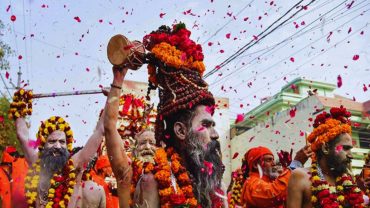Embark on a spiritual odyssey at Shivala Ghat, Varanasi’s timeless jewel along the Ganges River. Uncover the historical mysteries, cultural vibrancy, and soul-stirring experiences that make this sacred locale an unmissable pilgrimage for seekers of tranquility and cultural richness. Immerse yourself in the evening aarti, witness the city’s vibrant tapestry, and let the ancient stones whisper tales of Varanasi’s captivating past. Explore the heart of India’s spiritual capital with our detailed guide to Shivala Ghat – where history meets divinity in every step.
Introduction:
Nestled along the sacred banks of the Ganges River, Varanasi stands as the beating heart of spiritual enlightenment in India. One of the numerous ghats that adorn the city’s landscape is the enchanting Shivala Ghat, a place where history, mythology, and devotion seamlessly merge. In this blog post, we will delve into the rich tapestry of Shivala Ghat, exploring its historical significance, cultural allure, and the spiritual experiences it offers to pilgrims and travelers alike.
Historical Significance:
Shivala Ghat, also known as Kali Ghat, is steeped in history that dates back centuries. According to local legends, the ghat is named after an ancient temple dedicated to Lord Shiva, the god of destruction and transformation. The temple, adorned with intricate carvings and architectural marvels, draws pilgrims seeking blessings and spiritual solace. The very stones of Shivala Ghat seem to whisper tales of the city’s vibrant past, a history intertwined with the rise and fall of empires, religious movements, and cultural exchanges.

Cultural Allure:
Beyond its religious significance, Shivala Ghat is a hub of cultural activities that provide a glimpse into the vibrant life of Varanasi. The ghat is adorned with colorful buildings, bustling marketplaces, and steps that lead to the sacred waters of the Ganges. As you stroll along the ghat, you’ll encounter local vendors selling traditional handicrafts, street food vendors offering delectable local delicacies, and the sounds of bhajans (devotional songs) filling the air. Shivala Ghat is a microcosm of Varanasi’s cultural diversity, where the sacred and the mundane seamlessly coexist.
Spiritual Experiences:
For those seeking spiritual experiences, Shivala Ghat offers a tranquil environment for introspection and meditation. The serene ambiance, coupled with the gentle lapping of the Ganges against the steps, creates an atmosphere conducive to contemplation. Many visitors opt for boat rides along the river during sunrise or sunset, providing a mesmerizing view of the cityscape and the ancient temples that line the ghats.
The Evening Aarti on Shivala Ghat:
One of the highlights of Shivala Ghat is the evening aarti, a religious ritual that takes place as the sun sets. Devotees and tourists gather on the steps to witness the spectacle of priests offering prayers to the Ganges, accompanied by the rhythmic ringing of bells and the soul-stirring chants of mantras. The flickering flames of the aarti lamps create a magical ambiance, casting a warm glow on the faces of the participants and spectators alike.
Practical Tips for Visitors:
- Timing: Plan your visit to Shivala Ghat during the evening aarti to witness the spiritual fervor at its peak.
- Attire: Dress modestly as a sign of respect for the religious atmosphere.
- Boat Ride: Consider taking a boat ride for a unique perspective of Shivala Ghat and the surrounding ghats.
Conclusion:
Shivala Ghat in Varanasi is not merely a physical location; it is a journey through time, spirituality, and culture. As you navigate its ancient steps, immerse yourself in the sacred vibes, and witness the confluence of tradition and modernity, you’ll come to understand why Varanasi is considered the soul of India. Shivala Ghat, with its historical legacy, cultural vibrancy, and spiritual significance, stands as a testament to the timeless allure of this sacred city on the banks of the Ganges.



Comment (0)